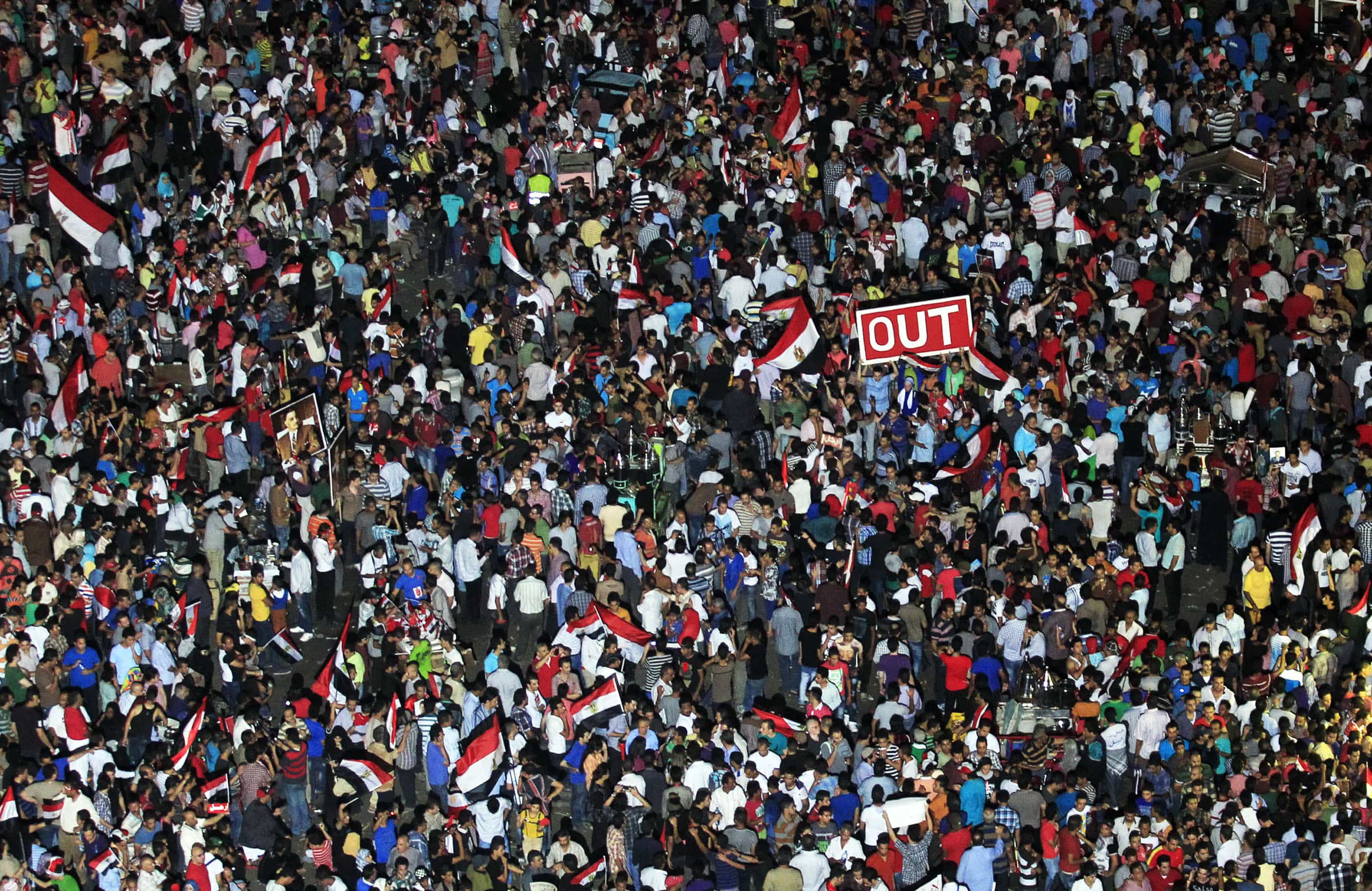Both private and governmental media outlets in Egypt have, over the past couple of days, found themselves to be the target of an aggressive and organised campaign of intimidation aimed at curbing and controlling their coverage of the 30 June protests gripping the country.
The last 48 hours leading up to 30 June 2013 witnessed what can be described as the most aggressive and most organized attack on the media in Egypt, affecting both private outlets and governmental.
Soon after Morsi’s ended his address to the nation on 26 June, simultaneously concluding one year since his election as president of the republic, violations against the media began to increase significantly.
His speech contained explicit phrases considered by many as a clear incitement and threat to the media; a rhetoric recently adopted by the president and his officials in their official addresses to the nation.
The threats indicate a determined intention by the president and his officials to exercise complete control over the message conveyed by the media during the few remaining hours before the beginning of nationwide demonstrations on 30 June meant to oust the president and his government.
Just hours following Morsi’s speech, the public prosecutor ordered the arrest and summoning of anchor Tawfik Okasha upon complaints filed against him on the same day, accusing him of disseminating false news which might disturb public safety. Later in the evening, the broadcast was cut while Okasha was presenting his show “Egypt Today”.
At the same time, Maspero, the state owned media institution, witnessed a major violation whereby anchor and director of the Radio and TV Institute, Gamal el Shaer, was made to resign on air at the beginning of his program “Talk to Egypt” (Kallem Misr).
He was informed by the director of the program that the president of the channel wants to terminate the program immediately in view of Maspero’s management objection to the views of his guests, which are opposing to the policies of the president and the ruling party.
It is worthy to note that the situation in Maspero has become fully under the control of the presidency after the presidential counselor for media affairs, Ahmed Abdel Aziz, was put in charge of the Radio and TV building. Abdel Aziz turned the building into an operation room run by him personally to ensure full control over the news being broadcast before the 30 June protests.
Testimonies given by Maspero employees to researchers from the Association for Freedom of Thought and Expression (AFTE), confirmed that the presidential consultant and his team have been the actual managers of Maspero since the “No to Violence” events that took place last week.
Abdel Aziz’s operation room controls everything ranging from approving the guest lists and ensuring that they don’t include any members of the opposition, to defining the permissible phone interventions, which he himself controls in collaboration with officials in the “control” room, and finally the revision of scripts for the different programs.
On June 27, the day following the president’s speech, some private channels received a letter from the Ministry of Investment, calling on them “to remain objective, not to cover events in a disruptive way, to respect the privacy of individuals and institutions and refrain from shaming them, not to broadcast material that is contrary to the principles and morality of society, and not to advocate violence”.
The ministry confirmed in its letter that the execution of the duties of the administrative body in case satellite channels and programs do not abide by the conditions of their contracts and permits, does not depend on providing evidence of breach according to the penal code, but that the management will intervene according to breaches, legal provisions and regulations, be they administrative or breaches of guidelines and principles of media activity, even if they do not amount to a criminal breach as defined by the penal code and the law of criminal procedures.
AFTE considers the letter to be a threat to private media channels, whereby the ministry is free to identify and punish breaches, exercise censorship, and control the media content, in clear violation of the basic principles of media freedom, especially diversity of opinions which is one of the most important hallmarks of a free press.
AFTE affirms that this campaign led by Egyptian authorities against private and public media is a violation of article 48 of the Egyptian constitution which forbids the closure or confiscation of any media outlet without judicial orders. The article also prohibits imposing any censorship or control over media outlets except at times of war and in a state of public mobilization, indicating the president’s and his government’s lack of respect for the constitution, for which they fought a fierce battle against most political groups in the country.
Finally, AFTE demands the abolition of punitive authorities granted to the General Investment Agency against media outlets working within the Media Free Zone according to investment law no. 8/1997. Especially the authority to inspect, block or withdraw permits, which has become, after the Muslim Brotherhood gained power a sword hanging over every media outlet critical of the president’s performance and his party’s rule.



